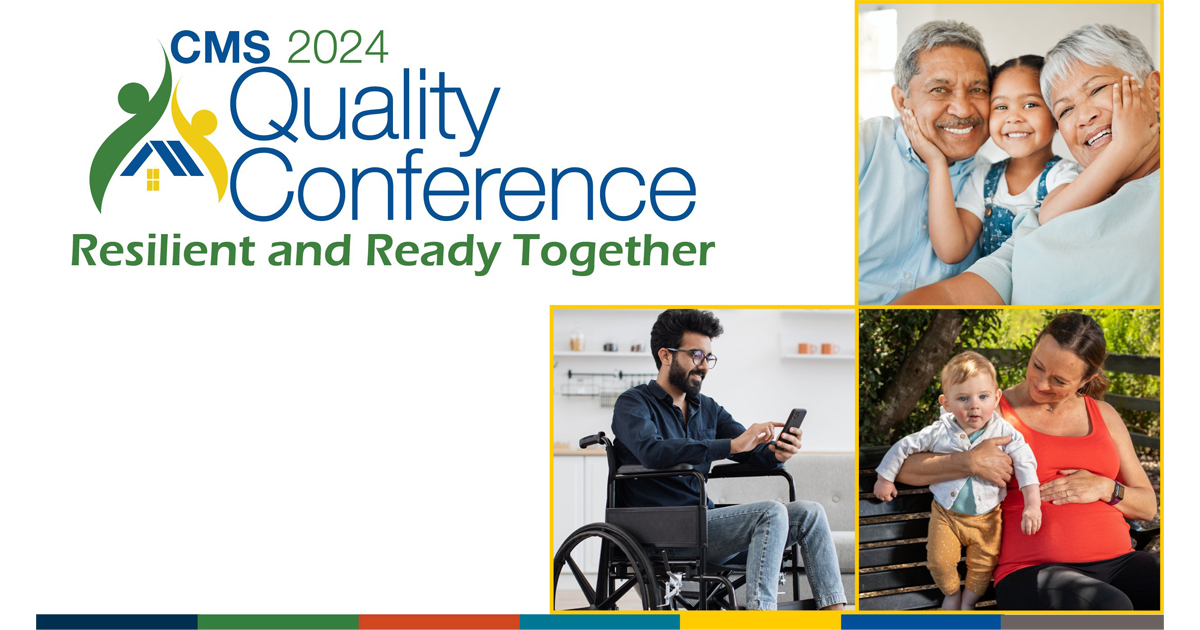The Centers for Medicare & Medicaid Services (CMS) 2024 Quality Conference brought together more than 150 Medicaid and Children’s Health Insurance Program (CHIP) quality professionals in Baltimore, Maryland April 8th and 9th—gathering in person after three years of virtual meetings. The conference was more than a group of individuals: it was a reunion for a tightly knit community uniquely skilled in the science of health care quality, the nuances of Medicaid and CHIP policy, and a passion for improving the care received by more than 85 million people covered by Medicaid and CHIP. The Mathematica Medicaid and CHIP Core Set technical assistance team is proud to be part of this community and a partner supporting the Center for Medicaid and CHIP Services (CMCS) in planning the Medicaid and CHIP content for the conference.
No topic preoccupies state Medicaid and CHIP quality teams more than mandatory reporting of the Child Core Set measures and the behavioral health measures on the Adult Core Set. State reporting of these measure sets was historically voluntary but is now mandatory for 2024. At the conference, Mathematica and CMCS provided technical assistance to 12 states and their partners through small-group and one-on-one sessions to allow for more in-depth discussions. These sessions gave CMCS a better understanding of state perspectives on mandatory reporting, their challenges and potential solutions, and new opportunities to provide Technical Assistance (TA) to help states comply with the regulatory requirements. The sessions demonstrated a collaborative spirit to share lessons across states, brainstorm options, and generally accelerate progress toward meeting the requirements of mandatory reporting.
CMCS work in Quality Improvement (QI) was well represented on the agenda. The mini plenary session on the opening day introduced QI tools and resources that states can use to implement their own QI projects. The session demonstrated how West Virginia successfully applied the tools to improve the timeliness of health assessments for foster care and adopted children. Two additional sessions highlighted promising results from the improving infant and well-child care affinity group and the oral health in primary care affinity group. In all three sessions, CMCS shared successes and lessons learned to help other states.
Other important topics in Medicaid and CHIP included sessions focused on service delivery using existing authorities. These topics are commonly discussed at Medicaid and CHIP conferences, but these sessions offered state attendees the less common perspective through a quality lens. A session on health-related social needs (HRSN) featured speakers from Washington and Arizona sharing their initial experiences with using Medicaid authorities to address housing and nutrition services and supports. Although states differ in their use of authorities, state quality staff received further information about these supports and services that could assist their teams in developing or enhancing quality measurement and improvement for HRSN within their own states. A school-based services session featured a panel including CMCS, MassHealth, and the Chicago Public School District which represent the three essential parties in delivering these services. Although data collection in these programs is still developing, state quality staff gained insights about these services that may support early work in integrating quality measurement and improvement into the management of the program.
Outside the conference sessions, the halls displayed posters, including eight from Medicaid and CHIP, covering quality measurement and improvement topics. These featured various state initiatives such as Core Set development and reporting strategies as well as maternal care review initiatives. The posters provided staff with insights into other states’ quality projects and facilitated connections for future discussions on applying these lessons in their own quality measurement and QI initiatives.
To supplement the conference content, Mathematica and CMS created a resource guide that captured many of the TA products related to quality measurement and improvement discussed during the conference.
One of the most common phrases heard at the conference? “It’s great to see everyone again.” The energy and collaborative spirit of the event lived up to the conference theme, "Resilient and Ready Together.” As Mathematica continues to provide ongoing TA support for mandatory reporting and QI, we are eager to see the practical application of lessons learned at the 2024 conference in action. Over the coming year, Mathematica will continue to seek new opportunities to accelerate quality measurement and improvement in Medicaid and CHIP.



